Stress can make anyone a little crazy, even our cats. Even worse, stress can be an indication that your cat has a health issue. According to Patricia B. McConnell, Ph.D., a certified applied animal behaviorist, chronic stress can even “suppress the immune response, causing a broad range of illnesses.”
It’s easy to tell when a cat is reacting to a stressful moment—it arches its back, flattens its ears, hisses or growls, and even urinates on the spot. But chronic (long-term) stress isn’t so easy to pinpoint. Identifying the symptoms of stress early on will help you start treating your cat’s discomfort as soon as possible.
Here are some signs of stress you’ll want to watch out for in your cat. If you notice any of these signs, we recommend seeking veterinary attention right away.
1. Urinating Outside Litter Box
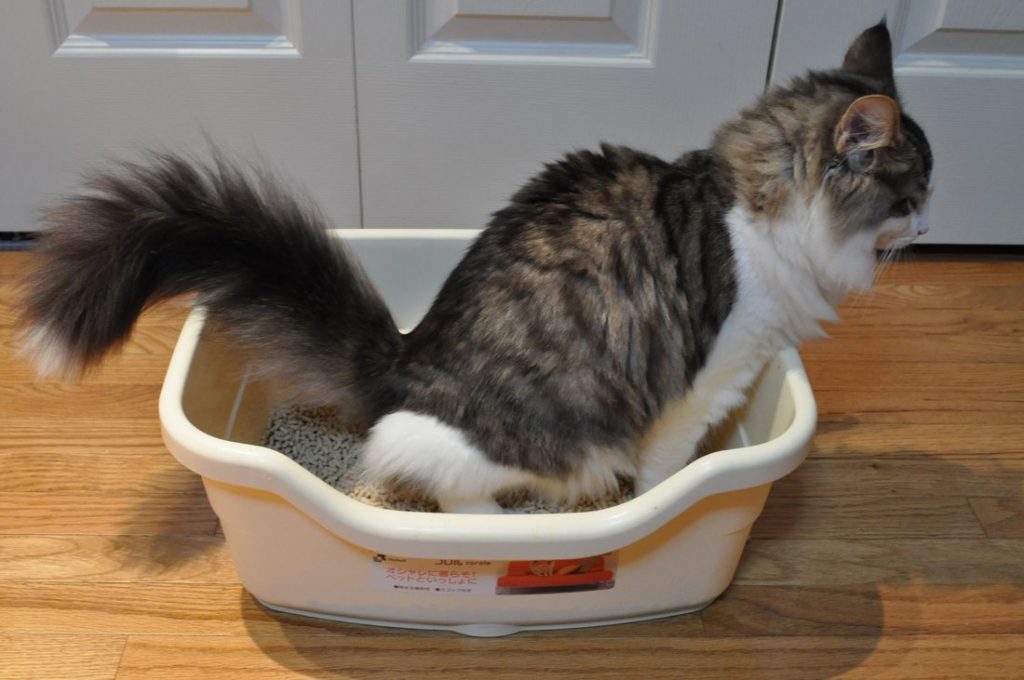
It’s annoying, smelly, and a pain to clean up, but pay attention. Cats that urinate outside the cat litter box are trying to tell us something. He or she may be stressed due to rearranged furniture, loud noises, an unclean litter box, or several other factors. Your cat may also have an underlying health issue causing the inappropriate urination. Consult your veterinarian or a veterinary behaviorist to help find the problem.
2. Diarrhea, Constipation, or other Digestive issues
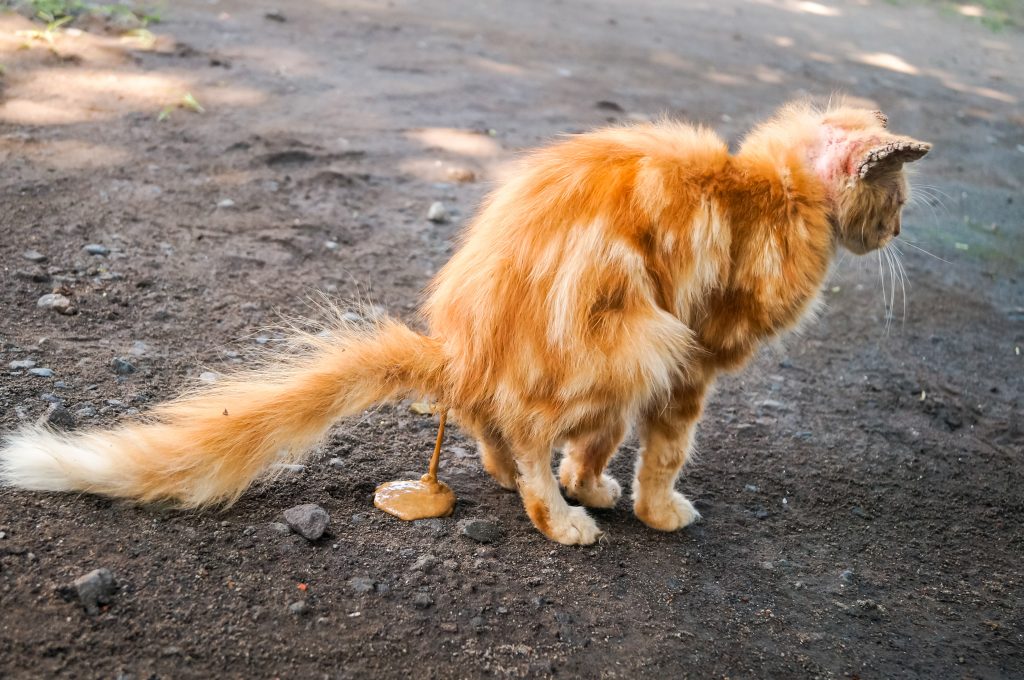
This is another rather stinky situation and one that could be indicative of several things. It is best not to let it go and speak with your vet.
3. Excessive Grooming
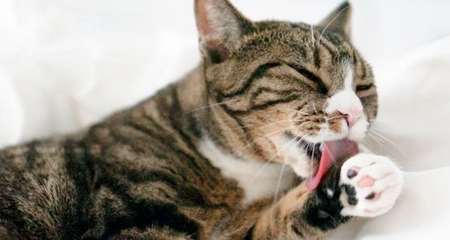
Cats are known for their fastidious grooming, but licking themselves raw or bald is a clear sign of distress. Grooming to the extent of injury or inflammation will continue to get worse if left untreated, so it’s best to find out what’s bothering your cat.
4. Excessive Scratching
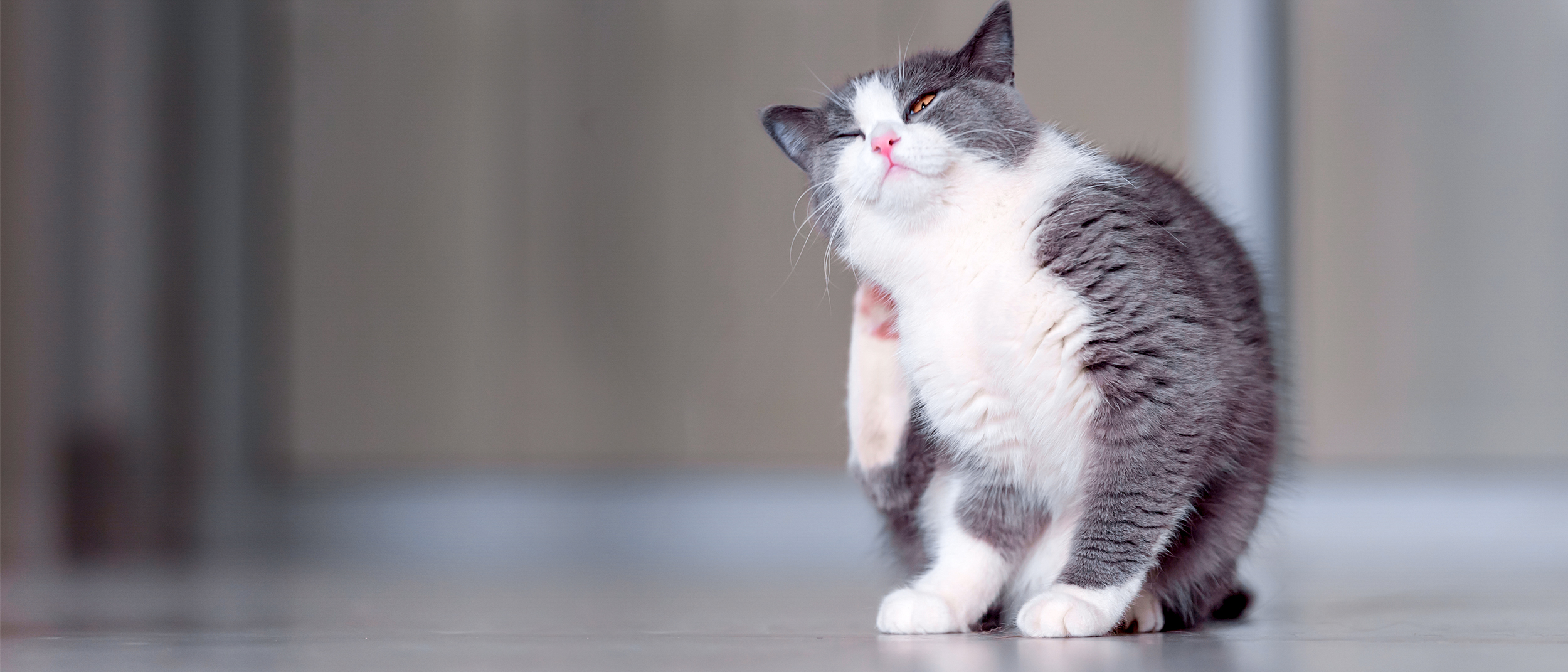
Like compulsive licking, excessive scratching can be indicative of several health and behavioral issues.
5. Isolation
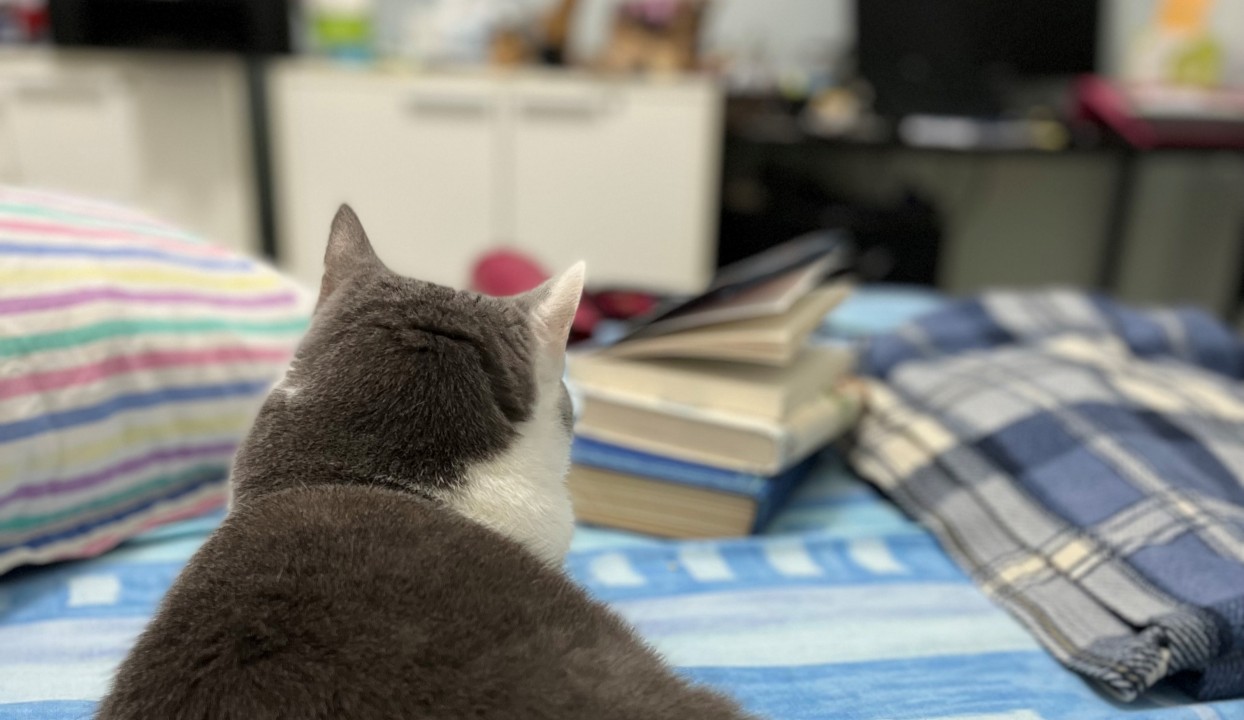
Cats are independent and often have their favorite hiding places, but even the shyest cats usually come out to greet their families. If you notice your cat is hiding regularly or prefers to be in isolation when they were once very social, there might be something going on that’s upsetting them. Cats hide because they are frightened or in pain, so identifying the underlying cause is important to providing them a quality life again.
6. Excessive Vocalization

Many find the tone of a cat “talking” quite soothing, but be wary of unusually long or recurring bouts of panicked meows — especially if your cat is not the typical “talker.”
7. Decrease in Appetite
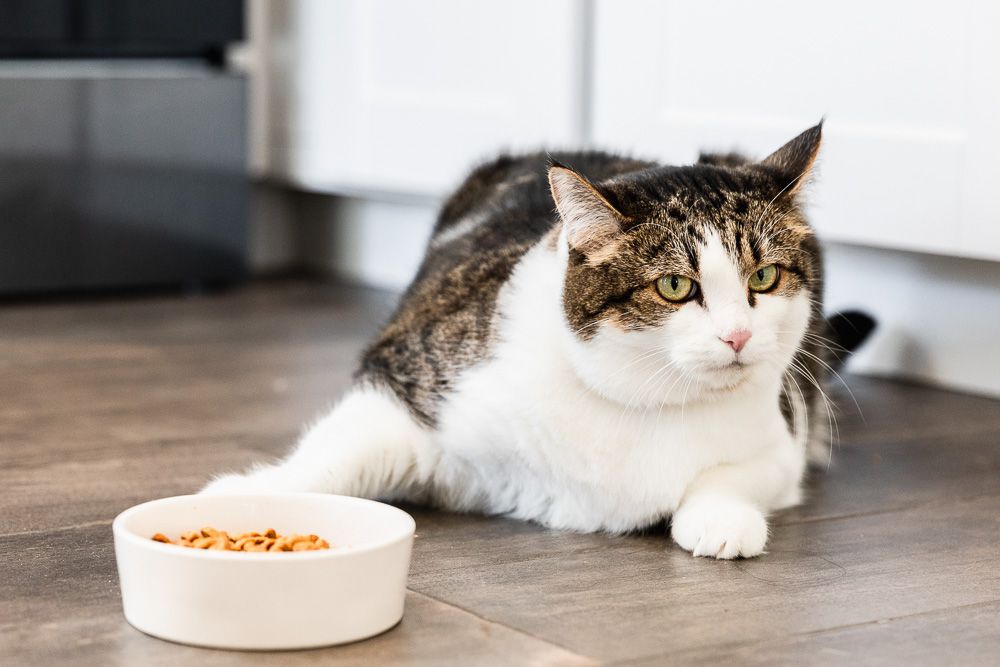
Cats don’t go on fasts or diets like we do so it’s important to consult a veterinarian if your pet suddenly loses interest in food or stops eating altogether. It could be due to stress or to an underlying health condition.
8. Increased Sleeping
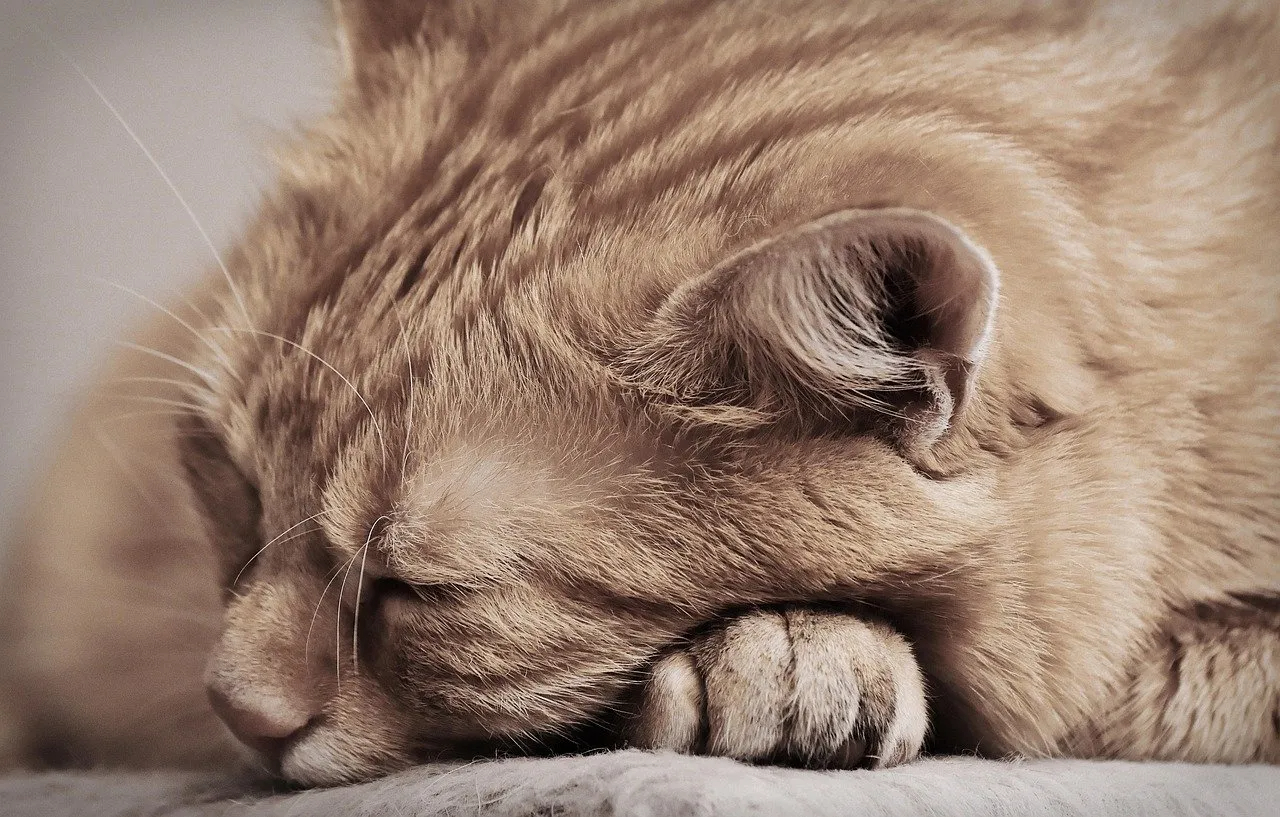
Just because cats can sleep up to 20 hours a day doesn’t necessarily mean your cat will. By now, you will have become accustomed to his or her sleeping schedule. Speak with your veterinarian if you’re cat is sleeping more than usual or seems overly lethargic.
9. Aggression Towards Other Animals
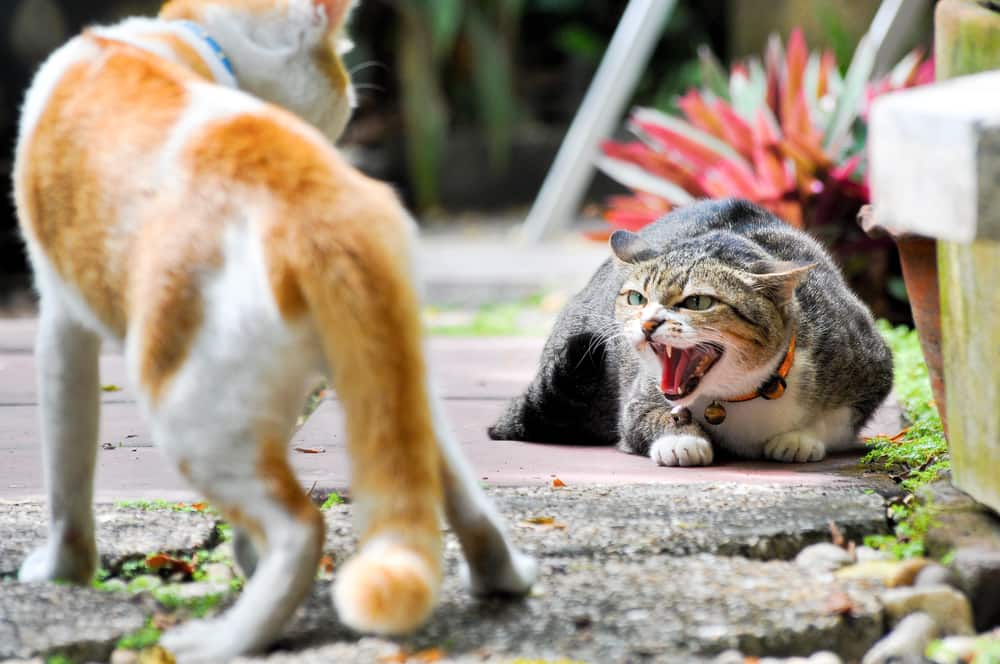
Fights or aggressive actions towards household pets or other animals can be a sign of a stressed or sick cat. Aggression can be caused by physical or emotional stress, so if you notice this change in your cat’s behavior it’s recommended that you consult a veterinarian.
10. Aggression Towards People
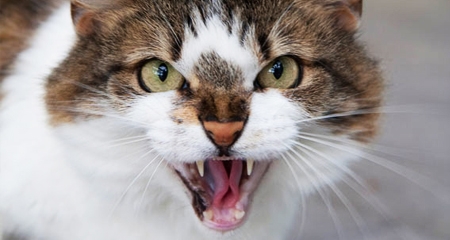
A stressed or sick cat may also display aggression towards people, even you.
How to Help a Stressed-Out Cat?
For any of the symptoms listed in this post, you can contact a vet for advice. Some of these symptoms may indicate a problem other than stress, so getting cleared by the vet first may make it easier to clear out stressors. Here are some tips for helping to alleviate stress in your cat:
1. Play or exercise with your cat regularly
Physical activities like a game of “chase the mouse” or “follow the feather” are a great stress reducer for cats.
2. Create a safe zone
Set apart an area or secret hiding spot in your home for your cat to escape high-stress events like thunderstorms and parties.
3. Choose high-quality cat food
Your cat’s diet is an integral part of his health and well-being. Providing your cat with a diet that is not properly balanced for his or her life stage and lifestyle may cause unforeseen repercussions that may lead to anxiety and stress.
